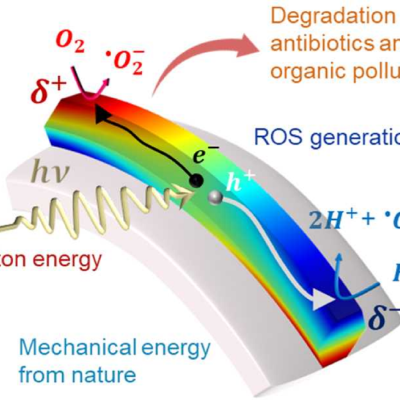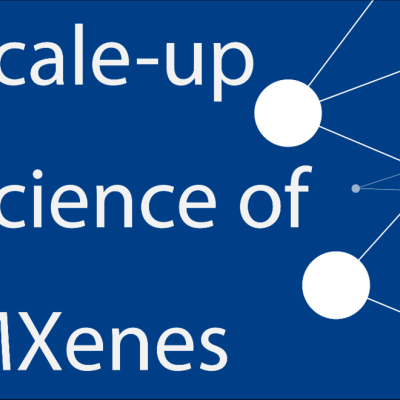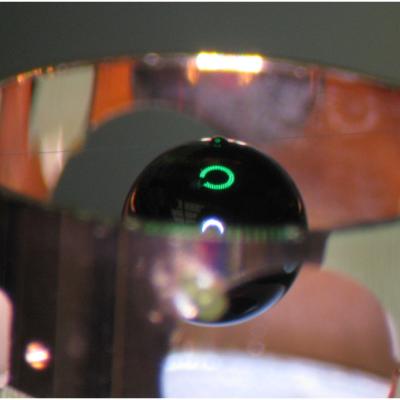LLNL researchers have introduced the use of a kirigami inspired substrate to act as a mechanical transducer, which converts macroscale stretching motion into localized bending. The performance of photo-piezocatalysts made with aligned arrays of photocatalytic nanomaterials on the kirigami shaped substrate yields significant enhancements (~250%) in the degradation of dyes.
Image…





